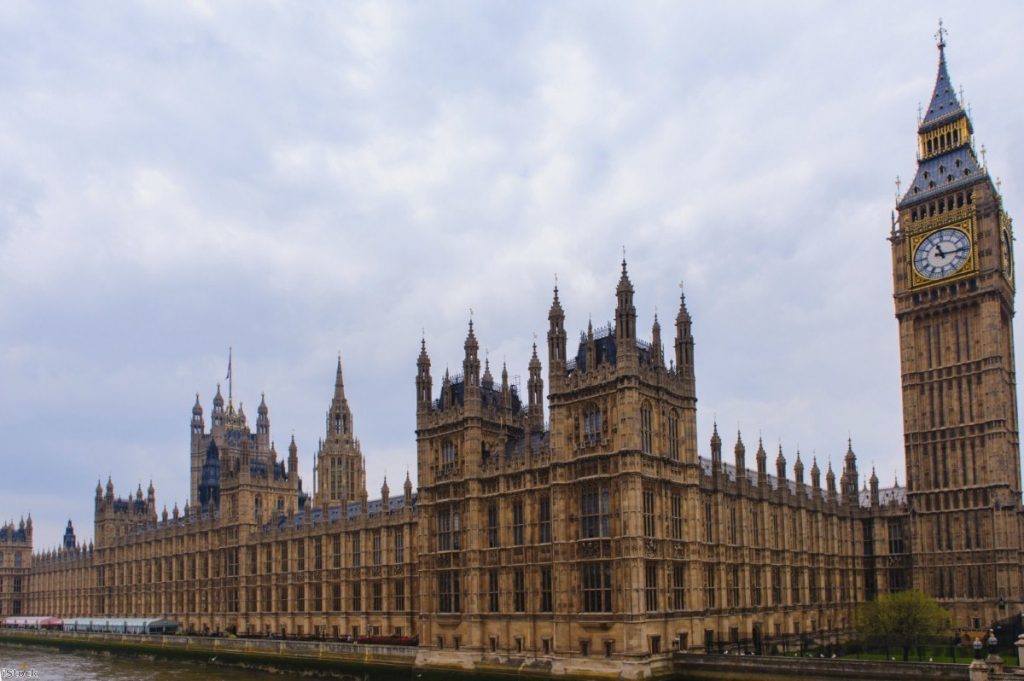By Gordon Guthrie
'Henry VIII powers' sound splendidly English. They acquired this sobriquet by the king's misuse of them, but actually their roots are found in that ghastly European proto-federalist William the Conqueror.
Now we're about to be ruled by Henry VIII powers again, as the repeal bill replaces parliamentary scrutiny with what amounts to ministerial fiat for the duration of the Brexit process. So it's worth taking a moment to imagine how that period will go.
The best way to understand how something will go next time is to look at how it went last time. In this case, it takes us back to a period slightly more recent than William I – when the UK ran a whole legal jurisdiction on primary 'Orders In Council' in Northern Ireland.
From 1969 Westminster and Stormont tussled over who controlled security. Violence flared through internment in August ‘71 and Bloody Sunday in January ’72. That March, Westminster took control of security and law and order policy. The Stormont government resigned and rule-by-decree was used to avoid an explosive general election.
Northern Ireland (Temporary Provisions) Act 1972 was for one year and it had plenty of safeguards. For a start it had to be renewed annually. And renewed it was, for year after year after year, until the Good Friday Agreement.
This is how the Orders in Council worked. The legislation would be laid before the Commons as a draft order and within 40 days there would be a debate, limited to 1.5 hours and usually in the early hours of the morning – to an empty chamber. There'd be no committee stage and no amendments, just a yes/no vote.
In the mid-80s the Commons spent on average just 21 hours debating Northern Irish Orders in Council per year. The Lords spent 13 and a half.
These were not just regulations, but often very substantial bills. The 2003 Housing Order ran to 98 page, 149 clauses and five schedules. The 1986 Companies Order had 681 articles and 24 schedules. Electricity, aircraft and ship building were privatised by decree. The 'right to silence' – made famous by countless TV cop shows – was abolished using the same method.
So what does this tell us about how the Brexit bill will proceed? Firstly, that these powers usually expand from what was originally envisaged.

There may be up to 12,000 Orders in Council – from minor technical issues to new regulatory institutions. Only the secretary of state for Northern Ireland had this power, but now all do.
Supporters of the government can claim that there are greater safeguards this time. Ministers cannot impose or increase tax, for instance, or create new criminal offenses, make retrospective legislative changes or meddle with human rights.
But wherever EU law has kissed UK law, a decree may be deployed. Given that a single regulation might be smeared across several departments, there is huge scope for turf wars and chaos.
Laws themselves will also become uglier and broader. The normal legislative process – with committees, amendments and readings in both Houses – leads to the fine-grained moulding of legislation. But the approval process for Orders in Council is much cruder. A minister can write primary legislation subject to the smallest restraints.
Post-Brexit government is likely to feature legislative congestion and overload. Issues come and go but overwork will be constant – and will condition the outcomes. Given the choice between a bad Order in Council and no Order in Council, the presumption will be to take the bad. That dynamic will lead to poor quality legislation.
Clashes, overlaps and missed complexity will be covered by granting secondary powers – and these will tend to be more like primary legislation.
It is likely that the current two year limit to the powers will be formally extended as well. That's usually how these things go.
Politics will not go away. Like weeds bursting through pavements, urgent matters will arise for which there is no spare legislative time. The choice will be to do nothing, or find somewhere – anywhere – that EU law kissed the problem. That will allow them to use a decree.
The evidence from Northern Ireland is that broad powers like these tend to run out of control once they are introduced. They last longer than planned and are used for a wider set of purposes than originally intended. Whatever safeguards there are in the bill are likely to be rewritten once ministers get used to doing things by fiat.
Gordon Guthrie is a former SNP parliamentary candidate and backroom boffin. He worked at Fortnight magazine in Belfast during the early 1990s.
The opinions in politics.co.uk's Comment and Analysis section are those of the author and are no reflection of the views of the website or its owners.





-01.png)